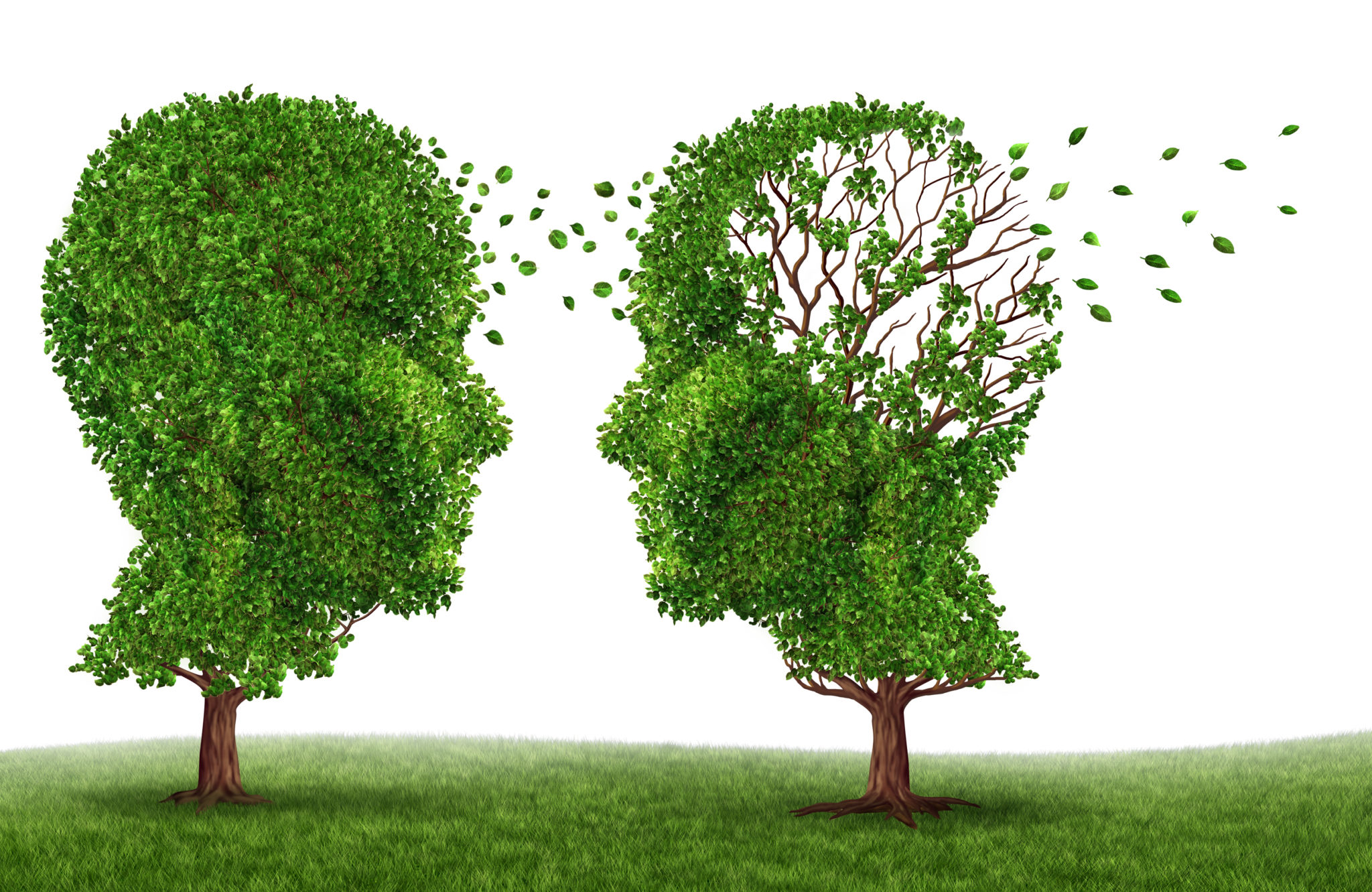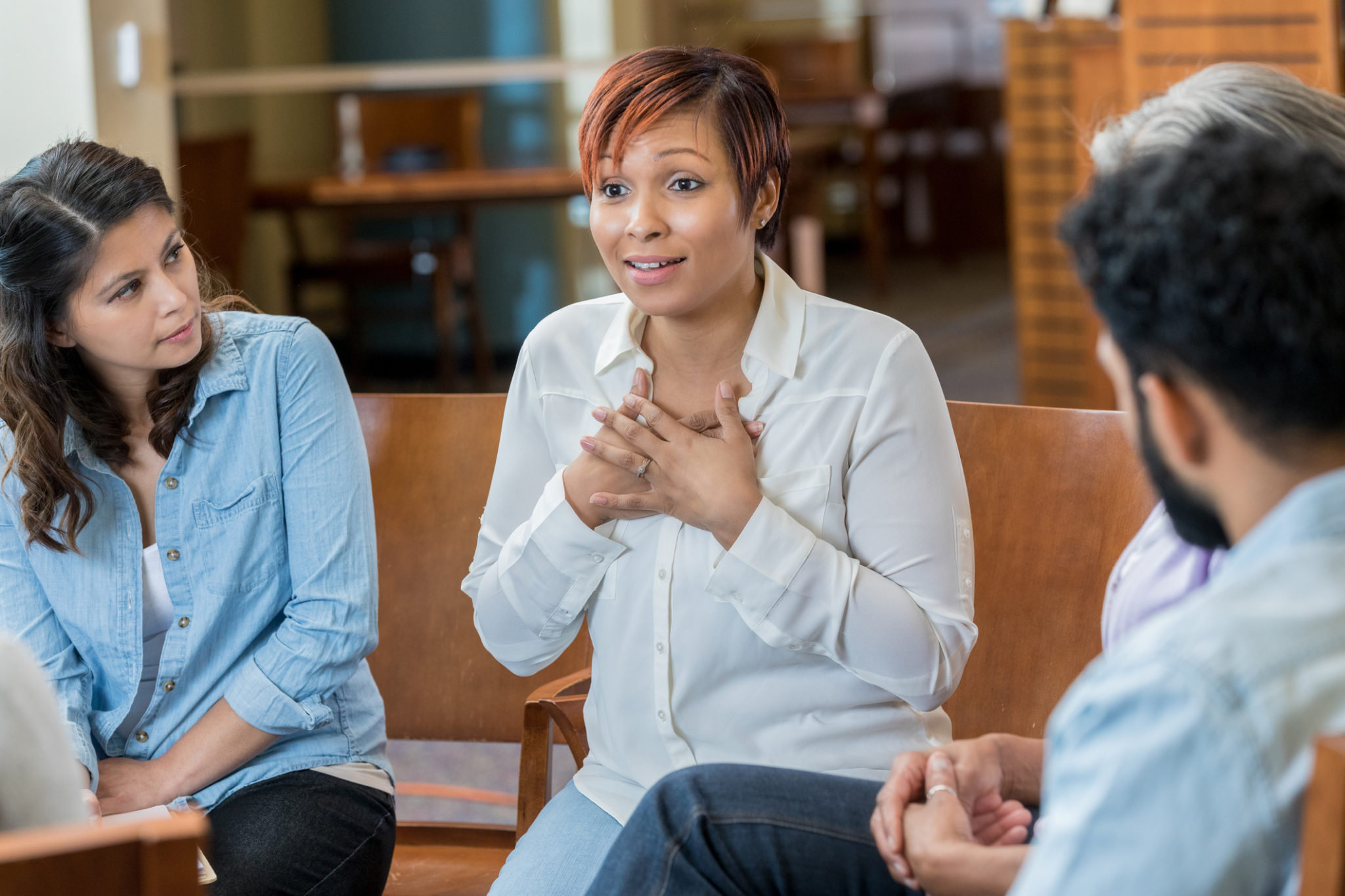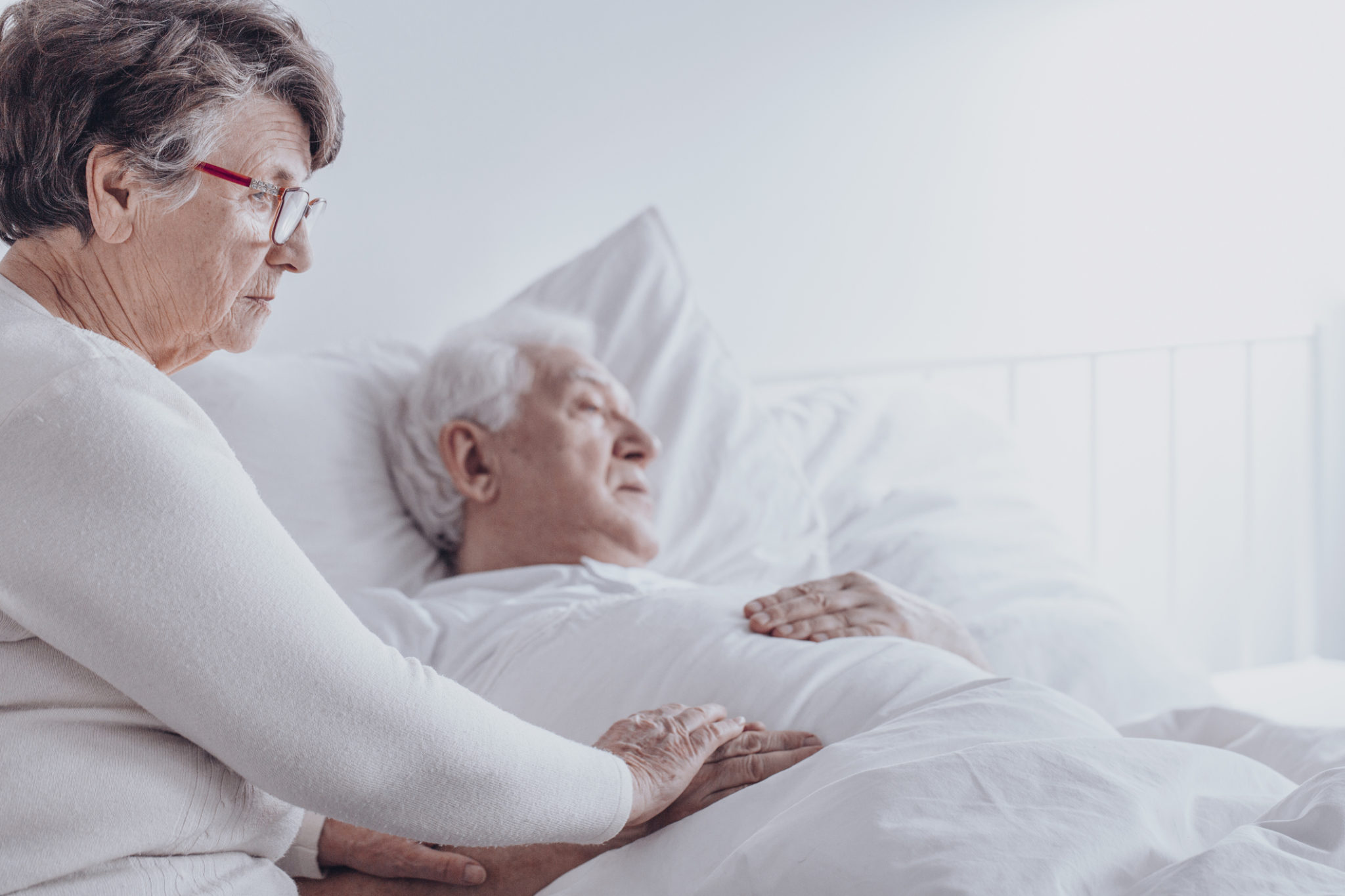by Deanna Upchurch, MA
June is National Alzheimer’s and Brain Awareness Month. HopeHealth shares guidance for families living with the impact of dementia.
What does it mean if you feel the symptoms of grief—such as denial, depression, anger, panic and physical ailments—but no one has died? Could you still be grieving?
Yes, if you’re caring for someone with a life-limiting illness such as dementia.
Many spouses and adult children experience anticipatory grief after a loved one is diagnosed with dementia such as Alzheimer’s disease, Lewy body dementia or vascular dementia. As senior director of clinical outreach and community services at HopeHealth, I have the honor of helping these families find comfort and connecting them with the support they need.
Anticipatory grief is real, and its symptoms can be a heavy burden while caring for a loved one. Ignoring or burying your feelings can lead to unnecessary confusion or guilt.
However, learning to recognize the symptoms of grief can help you cope, prevent burnout and better care for your loved one. The right support system can mean all the difference.
The instant a loved one is diagnosed with dementia, you start to grieve.
What is anticipatory grief?
Anticipatory grief describes the set of complex feelings experienced while anticipating an inevitable death ahead. You are grieving the loss of someone to illness, not to death, although the emotions can be just as intense.
The instant a loved one is diagnosed with dementia you may start to grieve. “What will my life be like without this person?” is a common first thought and fear.
As your loved one changes before your eyes, each loss of ability can feel like a little death. You may grieve the losses of memory, awareness, personality and ability to communicate long before your loved one passes.
You could also mourn the loss of a relationship that brought you companionship, reassurance and a sense of self. For many people the spousal or parent-child relationship is core to one’s identity.
The daily grind of caregiving can also cause a loss of friendships with others, as well as lost income, privacy, space and time.

What could I feel during anticipatory grief?
While caring for a loved one you might experience these feelings:
- Personal sacrifice and burden. It’s common to feel angry, scared and on edge. The role of caregiver is a burden and sacrifice, and you might regret losing the life you once led.
- Heartfelt sadness and longing. You might grieve the loss of your old life and feel powerless to stop this new reality.
- Worry and isolation. You may lose connections with other family and friends if you can’t socialize like before.
Given the hardships of caregiving, you might have feelings that make you feel guilty, like a wish for the illness to end or relief when your loved one ultimately passes. All of these feelings are okay.
Caregiving demands energy that you must replenish. Stopping to rest is a necessity, not a luxury.
How can I cope with anticipatory grief?
Long, tiring days define the lives of many dementia caregivers. Here are things you can do to make it easier:
- Understand that anticipatory grief is normal. You are allowed to mourn before a death, so don’t feel badly about it.
- Take care of yourself. Caregiving demands energy that you must replenish. Stopping to rest is a necessity, not a luxury.
- Seek professional help. Home care and hospice agencies offer a variety of support services for families dealing with dementia. You might qualify for home health aides to assist with your loved one’s personal care, such as bathing, dressing, grooming and light housework. Social workers can connect you with community resources and personal counseling services.
- Take a break. If you qualify for respite care, a trained volunteer can stay with your loved one while you take time to nap, go shopping, attend a caregiver support group and do another self-care activity. You can also look into HopeHealth’s Alzheimer’s Disease Assistance Program.
- Go to a caregiver support group.

What is a dementia caregiver support group?
A caregiver support group offers education, guidance and emotional support in a safe, non-judgmental space. HopeHealth offers Alzheimer’s educational support groups and a general caregiver support group in Massachusetts and Rhode Island.
You can attend while caring for someone with any stage of dementia. Some group guests are at the beginning of their journey, while others have been at it for a while.
In a support group you’ll find other dementia caregivers who understand the basic outline of your daily challenges. Finding people who “get it” is a pretty big deal.
Support group is a place to share joys and fears and to laugh and cry—but only if you want to. Just listen if that’s your preference.
Knowledge is power for any caregiver. The more that you understand the illness, the better you can face reality and solve problems.
For example, say your loved one routinely gets tired and agitated in the afternoon, which is a phenomenon called sundowning. Sure, you could read a pamphlet or seek advice online, but do you have time for that? Do you even want to?
More helpful might be a real-life conversation about what did and did not work for others.
Another example: A retired nurse in support group shared a problem she couldn’t figure out. Over and over her husband would ask where his mother was, and she’d answer, “Oh, honey, your mother has been dead for forty years.” He would cry, and they’d both get upset.
Years of research tell us it’s sometimes better to validate and redirect someone with dementia rather than reorient to them to a distressing truth. In group the woman learned to tell a “fiblet”—Your mother went to get her hair done, but in the meantime let’s go for a walk until she’s back—and the result was much less emotionally exhausting for both of them.
Of course, support group is also a place to share joys and fears and to laugh and cry—but only if you want to. Just listen if that’s your preference.
I love helping people find resources that make a difference in their caregiving experience. Nobody should suffer anticipatory grief alone. Expert, compassionate care is here if you reach for it.
Deanna Upchurch, M.A., is senior director, clinical outreach and community services for HopeHealth, a non-profit provider of hospice, palliative care, home care, and dementia and Alzheimer’s support services, serving Massachusetts and Rhode Island.
Interested in caregiver support groups? Please leave us a message at (401) 415-4664 or email SupportGroups@HopeHealthCo.org and we will respond to your needs

